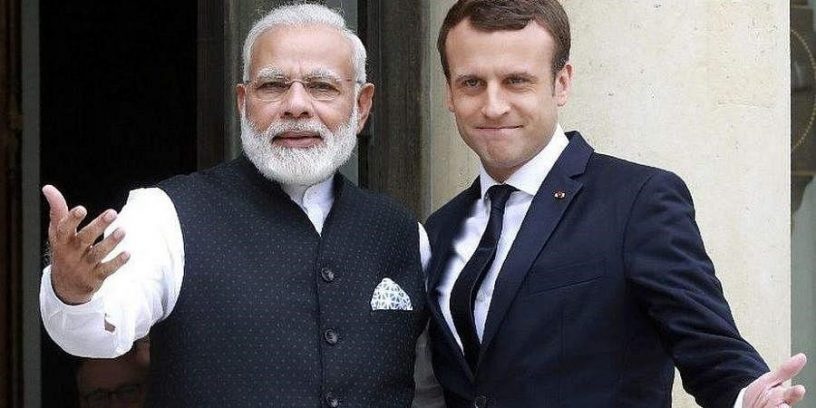
The speed and depth of Quad-plus — France and the four ‘Quad’ members, Australia, India, Japan and the US — depends on whether or not China shifts away from territorial expansionism, says Professor Sreeram Chaulia of JSIA
Authors:
Sreeram Chaulia, Professor and Dean, Jindal School of International Affairs (JSIA), O.P. Jindal Global University, Sonipat, Haryana.
Summary:
If two countries conduct joint military exercises, they constitute a pair. If five countries come together, they make a fist and convey a strategic message. The La Pérouse naval war games in the Bay of Bengal from April 5 to 7 involving France and the four ‘Quad’ members— Australia, India, Japan and the US—are stepping stones for the construction of the ‘Indo-Pacific’ to gain wider traction.
Although France’s mainland is over 8,500 km away, the fact that its naval warships are doing large-scale drills with Quad counterparts on India’s eastern maritime flank and continuing thereafter to sail to Japan via the South China Sea in a five-month-long deployment, shows that Paris is determined to project itself as ‘a State of the Indian Ocean rim’. Guided by notions of historical grandeur and a belief inherited from former President Charles de Gaulle that France can shape the world order, Macron has invested diplomatic capital to form a strategic entente with India and Australia, the two nearest regional powers to clusters of French overseas territories in the Indo-Pacific like New Caledonia, French Polynesia, Reunion and Mayotte, which face pressures and inducements from Beijing to break away from Paris and accept Chinese suzerainty.
The Australia-France-India trilateral, whose next dialogue edition is scheduled in New Delhi on April 13, is a natural outcome of France’s desire to thwart potential Chinese encroachments on French outposts. Macron’s call for a ‘Paris-Delhi-Canberra axis’ as ‘absolutely key for the region’, his dispatching of frigates and nuclear submarines to the South China Sea, the Taiwan Straits and the East China Sea in coordination with the US and Japan, and his appointment of a full-time French Ambassador to the Indo-Pacific, are unmistakable reminders to China that it will face counterbalancing resistance.
France shares with India and other Quad members concerns about ‘respect of international law by all states, in particular freedom of navigation and overflight’—diplomatic jargon for Chinese hegemonic behaviour. Still, given France’s limitations as a middle power with a raging pandemic and economic slump at home, it has championed an effort to forge an Indo-Pacific outlook for the entire EU. It has nudged Germany and the Netherlands to commit naval presence in the Indo-Pacific.
Published in: The New Indian Express
To read the full article, please click here


